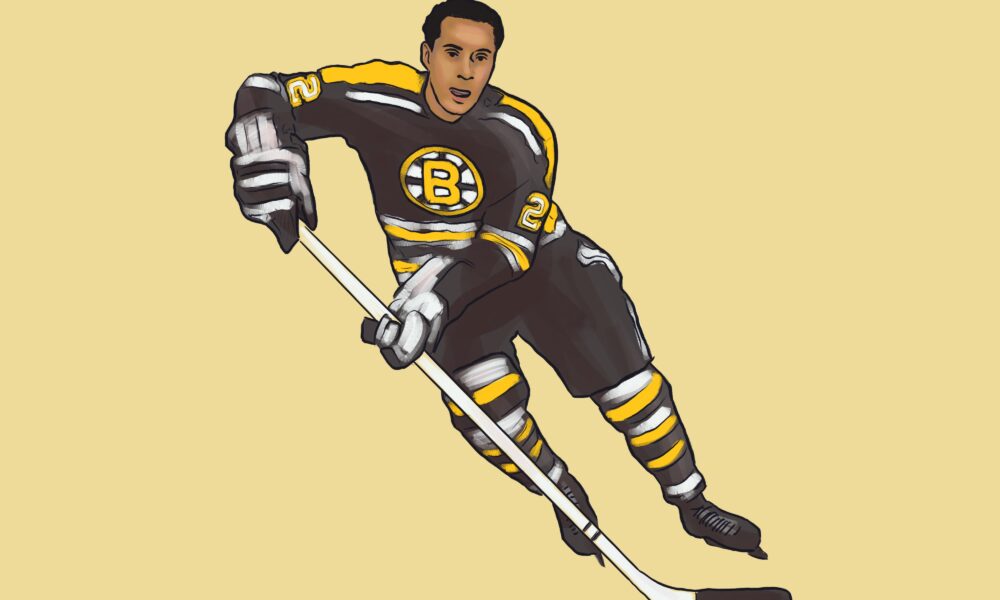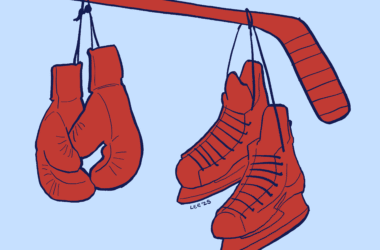From Tommie Smith and John Carlos raising their fists during the 1968 Olympics to Muhammad Ali’s refusal of the Vietnam draft to Colin Kaepernick taking a knee during the “Star-Spangled Banner,” Black athletes have a storied history of using sporting events as platforms for political statements—and of being punished heavily for it by leagues. Ali, who narrowly avoided prison over his refusal of the draft, was unable to compete professionally for years. Kaepernick hasn’t played an NFL game since 2016. In the midst of struggles for political voice from racialized players, major sporting leagues are increasingly attempting to honour Black History Month with a variety of programming, special games, and initiatives.
Despite the importance of sporting events as critical opportunities for Black athletes to make political statements to a national—or even international—audience, the NFL has tried to stamp out any hint of political messaging. Its current policy states that players cannot visibly display “personal messages” of any kind on game days, including those of a political nature. While this policy has also been used to prevent pro-Trump symbols, with Nick Bosa having recently incurred an $11,255 USD fine for wearing a Make America Great Again hat, there is a double standard where leagues fine white players for actions that would have ended the careers of Black athletes. The prohibition on political gestures raises questions about how authentically leagues like the NFL can commit to Black History Month celebrations.
In particular, the implication that it is possible to celebrate Black history in sports without being political is troubling and ignores the fact that Black athletes’ fight for inclusion in professional sports has always been political. The NAACP even went so far as to urge the NFL in a formal resolution from 2015 to officially celebrate Black History Month, referencing the high number of Black players and officials in the league, and the fact that the NFL has historically celebrated both Breast Cancer Awareness Month and Hispanic Heritage Month.
While the NFL has an official Black History Month webpage, containing stories of Black players from the last 50 years, these gestures ring hollow in the context of the league’s silencing of players’ attempts to speak out about racial injustice.
The NBA, which began celebrating Martin Luther King Jr. Day with an annual game in 1986, has a better track record of allowing players to speak out against racially motivated violence. In 2014, LeBron James wore a shirt reading “I Can’t Breathe” during a warm-up to protest the police killing of Eric Garner. More recently, the Milwaukee Bucks refused to play entirely following the 2020 shooting of Jacob Blake during a Black Lives Matter protest in Kenosha, Wisconsin.
Alongside the increased openness to political statements comes a more concerted and centralized Black History Month campaign, including both video showcases of important moments in the history of Black players’ involvement in the NBA and special events like the HBCU Classic game.
The NHL is incorporating celebrations of Black history into many of its scheduled February games. On Feb. 22 and Feb. 27, there are themed “Black Excellence” and “Black Heritage” matches during the Toronto Maple Leafs vs. Carolina Hurricanes and Tampa Bay Lightning vs. Calgary Flames games, respectively.
Closer to home, the Montreal Canadiens ran a fundraiser during last year’s Black History Month, selling signed items and merch designed by Kezna Dalz, a Montreal-based artist of Haitian descent. While this is a step in the right direction, NHL teams must engage in continued celebration and action during Black History Month, rather than one-off events and partnerships.
For the NHL, 3.74 per cent of whose employees identified as Black as of a 2022 report, the success or failure of their support of Black players and fans will be found in long-term trends of inclusion and acceptance, not the production value of their Black History Month programming.
Across the board, leagues—and their fans—must do more to remember, celebrate, and uplift Black players. In the midst of rising backlash against Diversity, Equity, and Inclusivity programs, it is crucial that leagues remain committed to combatting racism both during Black History Month and beyond.







